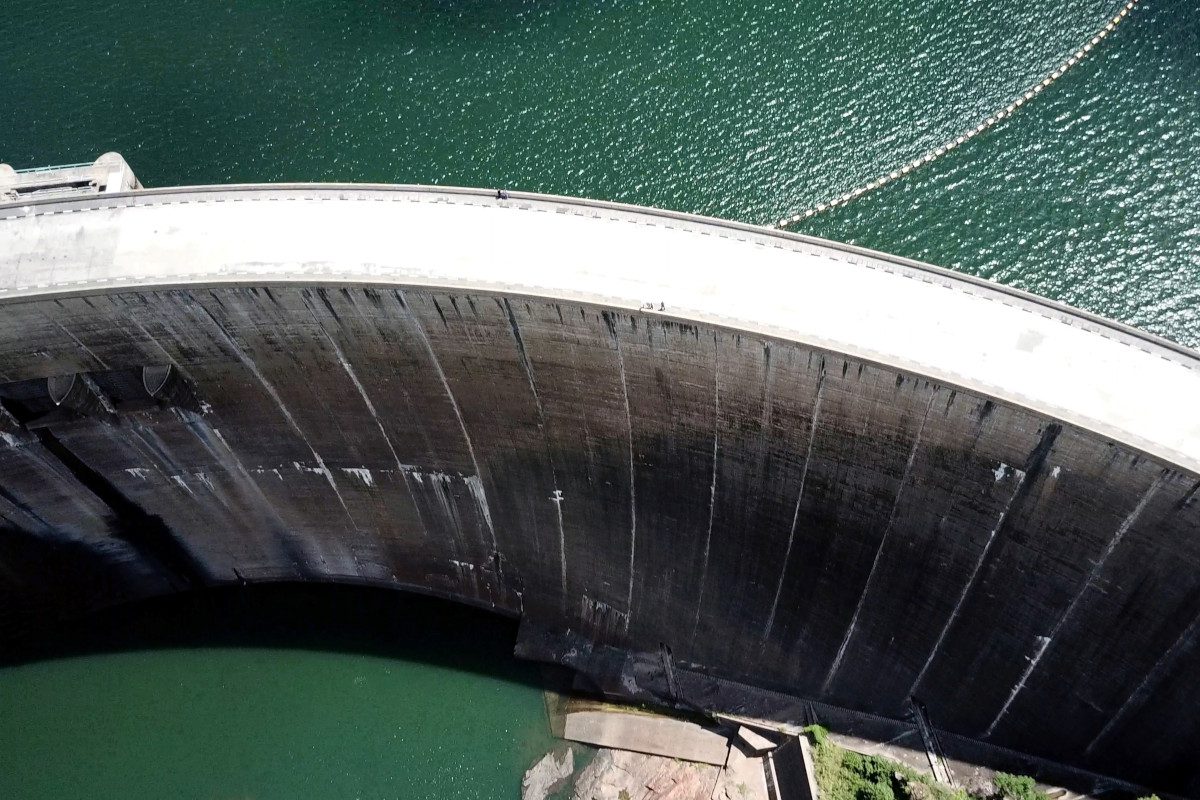
Hydropower, generally among Africa’s crucial sources of electrical power, will quickly fade in significance and deliver its position to solar energy. The beauty of brand-new hydropower is reducing quick, both due to the increasing financial competitiveness of photovoltaic panels and to the significantly unsure impacts of environment modification on river circulations. Most of brand-new dams proposed throughout Africa should, for that reason, most likely never ever be developed, recommends a brand-new research study released in Science
Plentiful rains, huge canyons, huge waterfalls: the location of Africa has all the components for producing electrical power from river circulation. For years, lots of African nations have actually depended on hydropower for electrical power generation, consisting of jobs that motivate as much wonder as debate. One just requires to consider Ghana’s Lake Volta, the biggest synthetic lake worldwide; the Grand Ethiopian Renaissance Dam, Ethiopia’s flagship task to offer countless its people with electrical power gain access to; or DR Congo’s imagine constructing the Grand Inga plant, which some claim might “illuminate all of Africa”. And the voices that promote for more of the exact same are strong: it is approximated that Africa has actually hardly made use of 10% of its hydropower capacity.
However is it a clever concept to prepare for numerous brand-new hydro dams throughout Africa? A brand-new research study from researchers in Italy, Austria, Ethiopia, and Belgium reveals that this might not hold true. The research study utilized an in-depth energy design to examine which mix of source of power would be most affordable for African nations to satisfy their increasing need up until 2050– comparing hydropower to solar, wind, coal, gas, nuclear, and others. With extraordinary information, the research study separately thought about every possible future hydropower plant in Africa– with its own storage size, river circulation profile, and interaction with other hydropower dams.
” What is distinct about our research study is that we design every hydropower plant in Africa separately– both existing ones and future prospects,” discusses Dr. Angelo Carlino, lead author of the research study. “By doing this, our design can identify which plants might be a clever financial investment and which ones need to most likely not be developed.”
Building Up all the numbers supplies a sobering photo of the future of hydropower in Africa. The research study discovered that as much as 67% of possible future hydropower plants in Africa might not deserve the financial investment. This is primarily due to the fact that hydropower will quickly mostly end up being not able to complete financially with solar and (to a lower degree) wind power, whose expenses have actually dropped at extraordinary rates in the last years.
In addition, the impacts of extended dry spells on hydropower, most likely to intensify due to environment modification, would need to be reduced through extra financial investments. “This is another reason solar energy will become the more appealing innovation in the long term,” states Dr. Matthias Wildemeersch, a research study scholar at the International Institute for Applied Systems Analysis (IIASA) in Austria and co-author of the research study.
Does this mean that it is “video game over” for hydropower? Not totally, as the research study discusses: in the short-term, some brand-new hydropower plants might still offer low-cost power for nations in requirement, and they might likewise be utilized flexibly to assist the combination of solar and wind, whose output continuously varies.
” Our design programs which particular hydropower plants would still be affordable in the short-term,” remarks Teacher Andrea Castelletti, teacher in Natural Resources Management at Politecnico di Milano and senior author of the research study. “Specifically in the Congo, Niger, and Nile basins, there are particular jobs that would deserve the effort, as long as they are well-planned and damaging ecological impacts are kept to a minimum.”
However in the long-lasting, solar energy would become crystal-clear innovation to be preferred by a lot of African nations, echoing the International Energy Company’s 2020 claim that solar energy would quickly end up being the brand-new “king” of electrical power markets worldwide.
” The window for hydropower in Africa to be a practical financial investment is really quickly closing,” includes Teacher Sebastian Sterl, teacher in Energy Meteorology at the Vrije Universiteit Brussel (VUB), Belgium, and senior researcher at the World Resources Institute (WRI) in Addis Ababa, Ethiopia. The research study recommends that beyond 2030, just a really restricted variety of hydropower plants would stay appealing financial investments throughout Africa. “Aside from cost-effectiveness, this is usually great news for the environment: it implies that lots of rivers will not need to be dammed and can keep their natural course,” concludes Sterl.